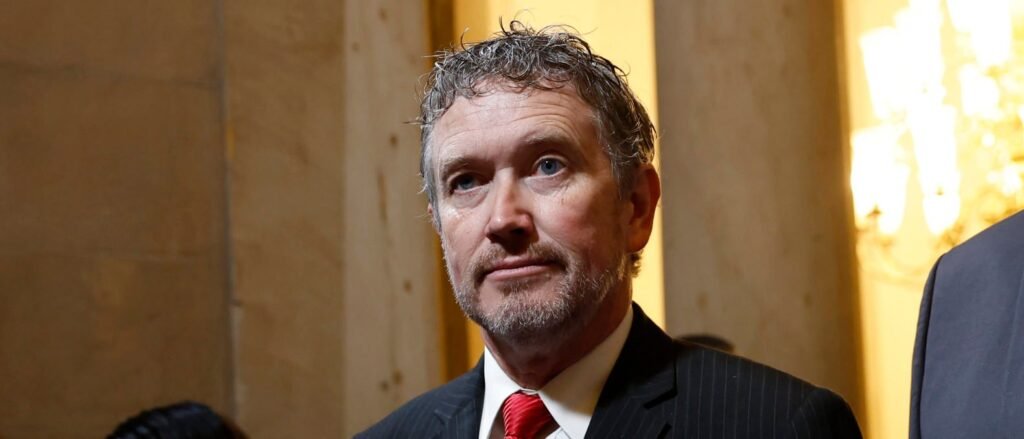Republican Representative Thomas Massey from Kentucky shared in an interview that he might consider supporting a “skinny” version of President Donald Trump’s proposed legislation. Currently, he won’t back the bill as it stands since he believes it won’t effectively cut government spending. Massey’s reluctance has led Trump and his allies to warn him of potential consequences as early as mid-2026. Reports suggest that AIPAC, the Israeli lobbying group, is also working behind the scenes regarding this situation.
However, Massey mentioned that he would be open to supporting a revised version of the bill. In a group chat with around ten other lawmakers dubbed “Budget Hawk,” he suggested the idea of dividing the bill into two separate pieces.
“Some conservatives in the House are understandably anxious about all the changes likely coming from the Senate,” he noted. “They might just need to, you know, scale it back a bit. Maybe even consider doing two bills instead of just one,” he added.
He detailed that the first part should align closely with the President’s key initiatives, including border security and extending the 2017 Tax Cuts and Jobs Act.
Massey expressed that his support for the legislation would depend on how it affects the deficit. “It’s really speculative to say where we might end up. But if we see the elimination of the Green New Deal subsidy, I might be on board with that—it all hinges on the overall budget impact,” he explained.
Recently, there have been modifications to the Senate’s version of the bill that raised concerns for Massey. Notably, the removal of the REINS Act requirements—which he had advocated for—means that significant federal regulations wouldn’t need Congressional approval before taking effect. Additionally, Senate discussions regarding renewable energy tax credits and potential changes to state and local tax income deductions could favor blue states more than red ones, according to him.
“If they limit the salt deduction to those earning under $400,000, that could lead to more benefits for blue states,” he stated.
Massey believes that the final bill from the Senate might negatively impact the deficit more than the House’s version if it passes. He noted doubts about meeting President Trump’s July 4 deadline, suggesting that the attempt to keep Congress working through vacation is likely a tactic to appease Trump. He thinks a more realistic deadline might be in August.
“I suspect they’ll leverage the threat of canceling the August break… They’re likely aiming to ramp up activity right after that,” he remarked.
A key point for Massey is his short timeframe for assessing the bill’s deficit impact. Typically, the Congressional Budget Office evaluates bills over a ten-year span, but Massey focuses on the next three to four years. He highlighted that President Trump’s proposals for no overtime taxes and tax reforms for seniors are set to expire within three years.
“The effect on the deficit is quite significant over the next three years, especially with the substantial bills that have already passed the House, particularly if spending is allowed to expire,” he indicated.
“It’s critical that we use our existing policies as a baseline,” he concluded.
Massey pointed out that while waiting for the Senate’s version of the bill to materialize, the House is making very little progress. “It feels like we’re just treading water,” he commented. “The House isn’t particularly active right now—it’s somewhat stagnant,” he claimed.
















